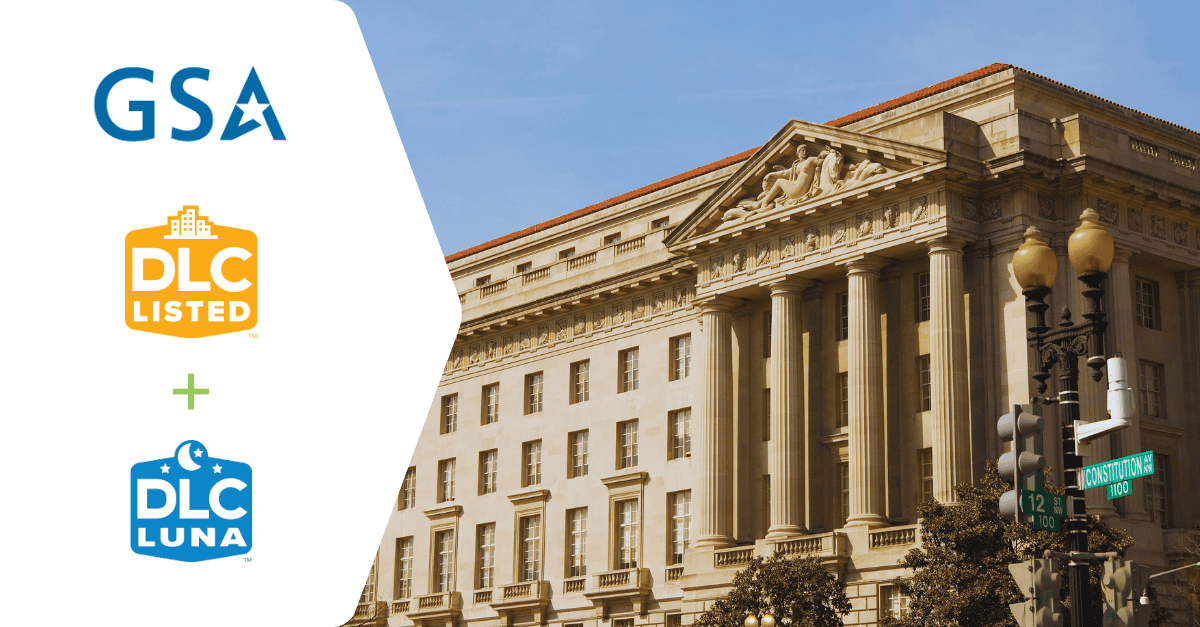
Energy efficient, light pollution mitigating luminaires on the LUNA Qualified Products List are now required as part of the General Services Administration’s mandatory standards for GSA-owned and certain leased facilities.
MEDFORD, MA –August 7, 2024 –The DesignLights Consortium (DLC) today announced that the US General Services Administration’s (GSA) newly-released 2024 P100 Facilities Standards for the Public Buildings Service – a key document guiding the purchase of products for federal and other public entities – now requires specific types of outdoor lighting to be qualified by the DLC’s LUNA program.
“Managing over 9,600 federal buildings, the GSA has a keen interest in reducing the taxpayer costs and carbon emissions associated with energy use,” DLC Executive Director and CEO Tina Halfpenny said. “Our LUNA Qualified Products List (QPL) is a practical tool for public facilities to ensure that they illuminate outdoor spaces only where, when and to the extent needed – saving energy and protecting the environment. We could not be more pleased the GSA has recognized its value.”
The GSA P100 Facilities Standards for the Public Buildings Service outlines energy efficiency benchmarks public agencies must meet when purchasing and installing products for public facilities. For several years, it has required DLC Solid-State Lighting (SSL)-listed products to ensure energy efficient lighting systems. Outdoor luminaires on the LUNA Qualified Products List (QPL) are now also required under the P100 Facilities Standards, except when specific product types needed for a project are not covered by the LUNA technical requirements.
LUNA-qualified products are designed to reduce both light pollution and energy usage. In addition to meeting independently vetted criteria for mitigating aspects of light pollution such as sky glow and light trespass, luminaires on the LUNA QPL meet all the DLC’s SSL V5.1 thresholds for efficacy, quality, controllability and reliability of commercial LEDs.
Manufacturers who wish to sell outdoor lighting products for use in federal and other public buildings can find additional information on LUNA technical requirements and applications here.
About the DesignLights Consortium: As an independent non-profit organization, the DesignLights Consortium provides decision makers with data and resources on quality lighting, controls and integrated building systems to reduce energy use, carbon emissions and light pollution. We envision a net zero future where lighting, controls and integrated building systems enable energy savings, decarbonization and sustainability for all people and the environment.
© 2025 DesignLights Consortium. The DesignLights Consortium is a project of Efficiency Forward, Inc., a non-profit 501(c)3 organization. Privacy Policy Terms of Use